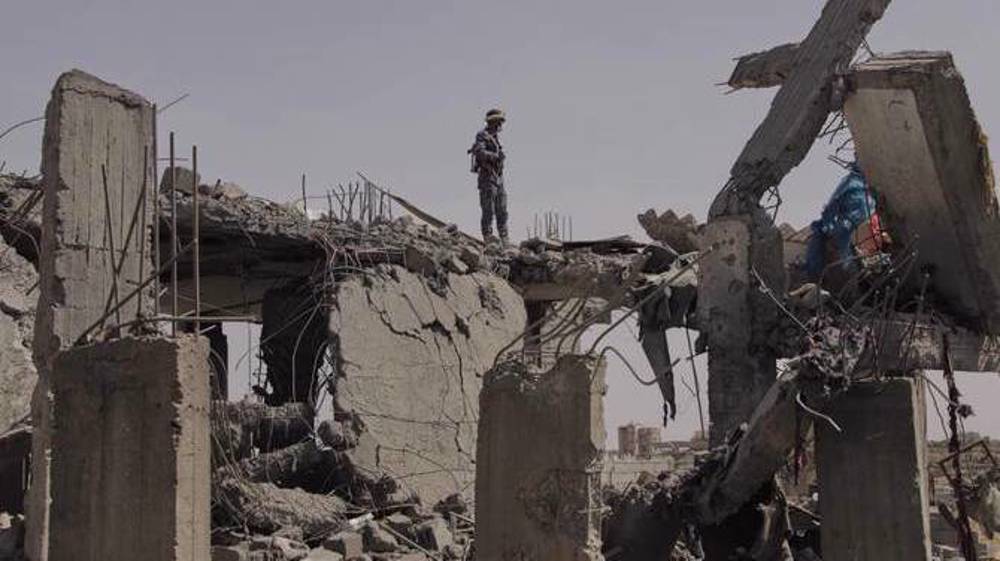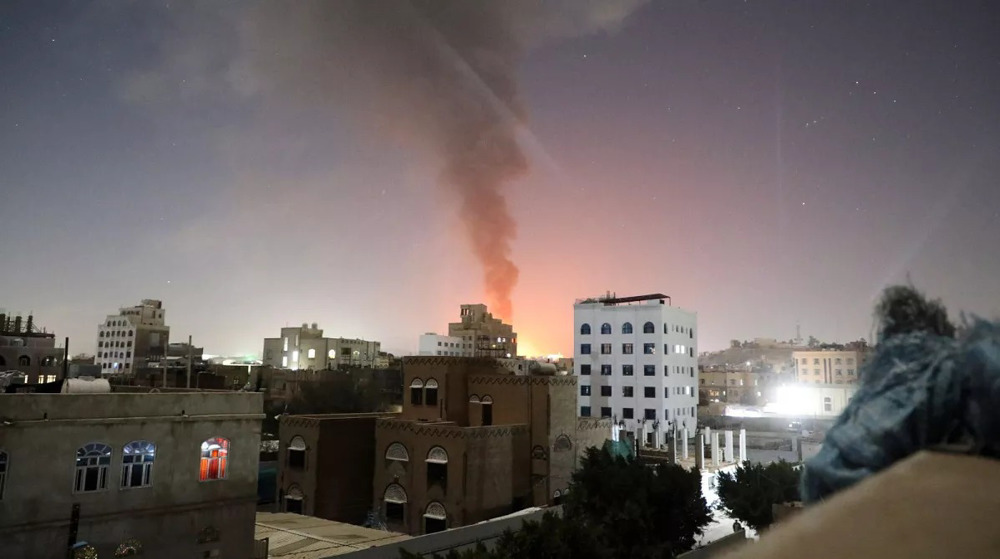UK accused of blocking UN probe of Saudi war crimes in Yemen
Amid Saudi threats, Britain is trying to throw a wrench into a new attempt at the UN Human Rights Council to establish an independent international inquiry into the war crimes being committed by Riyadh and its allies in their war against Yemen.
David Mepham, Human Rights Watch’s UK director, said the UK government, a close Riyadh ally, is making “extraordinary excuses for the Saudi-led coalition” and its “half-hearted” investigations into Saudi’s deadly air attacks, the Middle East Eye news portal reported Thursday.
“Yemen is [UK Foreign Secretary] Boris Johnson’s chance to step up – to match the gravity of events on the ground with a strong British policy, rooted in justice and compassion, which can help build a better future for ordinary Yemenis,” he added.
Canada and the Netherlands are calling for an international investigation into war crimes in Yemen while Saudi Arabia is backing a competing resolution in support of a domestic probe, in which Riyadh would investigate itself. The UN, however, argues a domestic investigation lacks credibility.
The Canadian-Dutch draft resolution will be put to vote at the Friday session of the Human Rights Council.
The Saudi regime has so far succeeded in thwarting an international investigation into its war crimes through intense lobbying campaigns and using pressure tactics against the countries backing such a probe. Last year, the kingdom had its name removed from an annual UN list of countries that kill and maim children in war.
In a letter earlier this week, Riyadh threatened economic retaliation against countries that vote for the draft resolution proposed by Ottawa and Amsterdam. The letter warned that adopting the draft “may negatively affect the bilateral political economic relations with Saudi Arabia.”
Alistair Burt, the British minister of state for the Middle East and North Africa, recently told reporters at the UN that the UK government believes Saudi Arabia was best placed to investigate allegations.
“Our view is that it is for the coalition itself, in the first instance, to conduct such investigations. They have the best insight into their own military procedures and will be able to conduct the most thorough and conclusive investigations,” he said on 21 September.
A source in Geneva told the Middle East Eye that chances of an independent investigation was slim. If no agreement is reached, this will be the third year in a row that the Human Rights Council has failed to address the occurrence of war crimes in Yemen.
A press release from Human Rights Watch published on Thursday accused the United States, the United Kingdom and France — major suppliers of weapons for Saudi attacks against Yemen — of remaining “hypocritically silent” on whether they would back the international investigation of rights abuses in Yemen.
The release emphasized that the same three nations had backed a similar investigation in Syria, where they have long been pursuing a regime change agenda.
The UK granted export licenses for more than £3.8bn of arms since the start of the Saudi war on Yemen in 2015.
In this regard, Andrew Smith, a spokesperson for anti-arms trade pressure group Campaign Against Arms Trade, told Middle East Eye that “the UK government has been complicit in the atrocities carried out against Yemeni people, and now it is acting to stop them from getting justice.”
He said “the Saudi regime cannot be trusted to uphold and observe the most basic human rights of Saudi people, so how can it possibly be trusted to investigate itself for war crimes?”
Last week, Britain’s Ministry of Defense announced a new military deal with Saudi Arabia despite increasing political pressure from the Labour Party.
British Labour Party leader Jeremy Corbyn slammed London’s foreign policy Wednesday, asserting that “terrorism is thriving in a world our governments have helped to shape.”
British Labour Party leader Jeremy Corbyn slammed London’s foreign policy Wednesday, asserting that “terrorism is thriving in a world our governments have helped to shape.”
Corbyn also singled out the double standards of British foreign policy in the Middle East region, criticizing arms sales to Saudi Arabia.
“Democracy and human rights are not an optional extra to be deployed selectively. So we cannot be silent at the cruel Saudi war in Yemen while continuing to supply arms to Saudi Arabia, or the crushing of democracy in Egypt or Bahrain, or the tragic loss of life in Congo.”
The government of British Prime Minister Theresa May has been under fire both at home and abroad for seeking to forge closer relations with oil-rich, repressive Persian Gulf monarchies before the UK’s planned exist from the European Union.
She has said Britain would invest over three billion pounds ($4.05 billion) in the military sector in the Persian Gulf Arab states over the next decade.

US pro-Israel strikes killed 123 Yemenis in less than a month: Ministry

US airstrikes on Yemeni factory kill 6 civilians

Yemeni armed forces shoot down 19th American drone
China urges US to ease trade tensions via ‘equal dialogue’
‘Hamas not defeated, military overstretched’: Israeli army chief
Iran, Armenia should elevate ties to strategic partnership: Deputy FM
VIDEO | Yemen shoots down another US MQ-9 drone
VIDEO | A number of Israeli soldiers killed, injured in Gaza ambush as retaliation rages
US pro-Israel strikes killed 123 Yemenis in less than a month: Ministry
VIDEO | Wars and documentaries
Iran starts major project to treat wastewater with cold plasma








 This makes it easy to access the Press TV website
This makes it easy to access the Press TV website